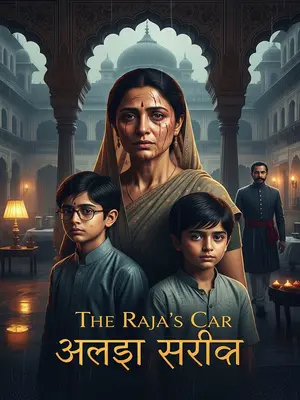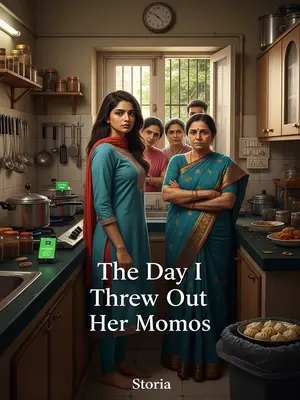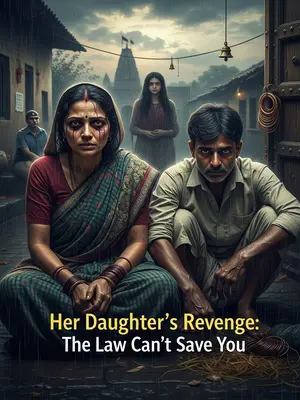Chapter 3: Years of Endurance
My mother was clever. She won over the aunties at kitty parties, laughed at stale uncle jokes, and made sure the cook added extra ghee to Kabir’s dal. Her sarees grew more expensive, her laughter louder.
But I remained a shadow—just another servant girl, invisible in my own home.
She basked in luxury: shopping bags, lipstick stains, imported perfumes overpowering the old coconut oil smell. She tossed me toffees as if that made up for everything.
I slept on a mat in the servants’ quarters, beside Rupa, who snored like a train. My treasures: a tattered book, Nani’s photo, a schoolbag that always smelled of cheap soap.
They bullied me, giving me the dirtiest, hardest chores. If the toilet clogged, I cleaned it. If the milk spilled, I scrubbed the stove. The cook splashed dishwater at my feet if I was slow, and the maids giggled, calling me “Madam’s naukrani beti.”
After the shoe-wiping incident, things only got worse. I polished Kabir’s shoes each morning, swept the garden before dawn, served tea to guests with a smile that never reached my eyes. The other maids snatched better food, leaving me scraps.
But I endured. I wanted to study. I didn’t want to return to Kaveripur, where dreams dried up like rain puddles in May.
Each slap, each insult was another page in the story I wrote in my head: the story of how I’d leave this house behind.
Only by staying could I keep going to school.
I clung to my textbooks as if they were life jackets. If I didn’t get good marks, I’d be sent back. Here, at least, I had a chance.
Ten years, I promised myself. Ten years, then board exams, then freedom.
Each birthday, I drew a line in my diary: “Ten years, Ananya. Just ten.”
But in my tenth year, everything broke. My mother was caught in bed with another man—and nearly beaten to death.
The night exploded with shouts, the crash of glass, the slap of shoes on marble. The maid wailed, men cursed, my heart hammered like a dhol.
She refused to admit her affair, screaming she’d kill whoever set her up. “Jisne mujhe phasaya hai, uski jaan le loongi!” Her eyes met mine, wild and unseeing.
Kabir stood atop the staircase, framed by lightning, lips curled in a sneer that made my blood run cold. Servants watched, some with pity, some with glee.
That night, I felt the bone-deep malice from him—no words, just a silence harder than any slap.
His revenge began.
A shadow fell over the house. Even the wind seemed colder, every door slammed harder. The games were over. Now it was war.








